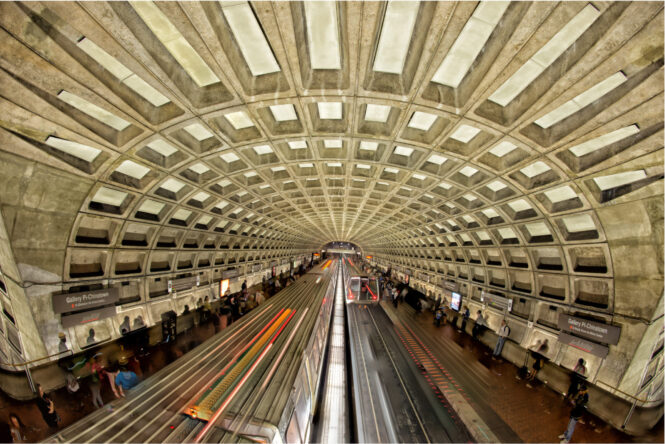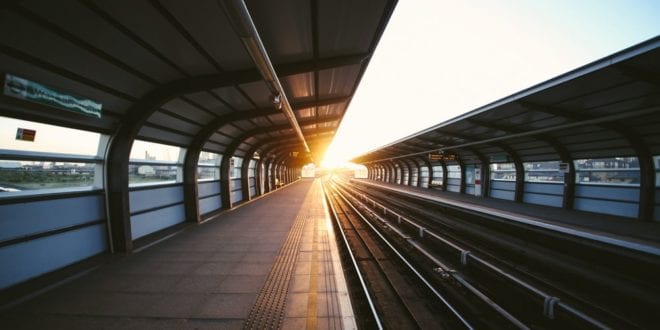All major cities of the world have metro stations all over. Metro, or subway, is an enormous web of underground railways and train stations that helps the citizens commute to work and go about their day. Usually, subway stations are conveniently placed next to or near all of the important locations in a given city, so even if you have to change several trains or subway lines to get there, it is quite easy.
Now, the question we ask in the title seems rather obvious, because single rides tend to range from a single dollar to maybe $2. When you compare this to other public transportation like buses and trams, as well as taxis, it is by far the cheapest. It is even cheaper than daily parking tickets. Still, this question needs a deeper look, and this is exactly what we will do here. Read on to learn more.
Is the Metro Cheaper than Driving?

Imagine having completely free or reduced parking costs at the carpark of your job or school. Does it then make sense to ride the subway when you can drive there each day and safely park the car for spare change? In Washington D.C., for example, this question does not really matter. In the capital of the USA, around 30% of people simply do not own a car of their own, according to John B. Townsend II, from the AAA Mid-Atlantic. The city has one of the biggest ratios of citizens without vehicles of their own in the entire states. Therefore here, public transportation like the subway is a huge necessity.
However, what about the 70% of people who do drive each day? How can they decide if taking the metro or driving is easier on their wallet? The results will surely surprise you.
Owning Cars gets Expensive
For one simple reason, people around the world, like those in Washington, opt not to own a car because they are expensive. Drivers often complain about the gas being the most expensive thing about their four-wheelers.
Actually, it is the cheapest because there are other large investments and costs, including parking, insurance, maintenance, etc. All of these factors, when determining what is cheaper. AAA’s “Your Driving Costs” guide did research back in 2011 and came up with some shocking results. The average cost of owning a sedan type vehicle rose to $8,776 per year, which is also 58.5 cents per mile if you drive 15,000 miles each year. Do you really need a car if you will spend some $9,000 on it per year?
Parking calculation

Let us say one ride metro ticket is $2, and that you work 21 days a month. That is $4 each day, which comes down to a total of $84 per month on the subway commute. When it comes to cars, we have first had to determine how this sum compares to downtown parking. In a city like Washington, unreserved parking space costs around $240 per month, while the average in the country is just over $155.
Therefore, you save some $150 on the parking alone, and we did not even talk about gas! Let us not even talk about car maintenance, insurance, and the constantly present wear-and-tear. BY commuting to work in conditions like this one, you will save a considerable amount of money if you use the subway twice a day instead of driving. You might even save some time too.
What if you Live Far?
If you live in the suburbs, you will not save that much since you will probably have to travel more. The further away you live from the metro stations, the gap in these cost calculations of narrows down. For some, driving could actually be a lifesaver in some situations.
Imagine having to drive each day from your suburban home into the city. So much driving, when added to the previous cost of parking we mentioned, as well as maintenance and insurance, will cost you around $400 per month. Now lets us think about riding the metro, but also having to drive a bit and pay for parking at the station. The result is almost the same, as the prices differ by some $10 on average. In scenarios like this, when time and comfort are of the essence, you must predetermine what is best for your life situation and how much time you are comfortable spending on the train or in traffic.
Mind that it matters greatly where you actually live, and where you travel to the most. This is not a universal guide, but rather something that can be applied to an average person. If you have trouble determining what is best in your case, try MetroJourneyPlanner.com. Metro is not always the obvious choice for everyone, but it can always be a viable solution.
Other Factors

Alternative Services
If you want to be in a car and avoid parking, you can also use services like carpooling, where drivers pick up and drop off passengers. This can perhaps save you the most money, but such services are not always available. More modern solutions like Uber can be pricey, and they are hardly a full-time solution.
Time
What is quicker, driving, or taking a train? This greatly depends on the routes and hours you have to take. During the times where rush hours are over, it is great to drive, and you will probably wait longer for a train during non-peak hours like late at night or very early in the morning. Again, you should focus on your respective situation and determine what suits your case the most.
Families
If you travel with your family a lot, things are very simple. Driving to the city as a family of four when two of you are going to work, and two of them to school is much easier and safer than going on the subway as a foursome. Four tickets are usually more expensive than daily parking, and the convenience factor is obvious. Again, if all members have responsibilities during different hours, the metro may work better for them.
Conclusion
Sometimes, owning a car can be amazing because you do not depend on anyone or anything else. Annually, on the other hand, the metro is cheaper for those who live and work inside the city borders. Scenarios and situations vary greatly, and you, of course, cannot always think about the savings. Metro, nor a car, is an obvious choice. Each one of us has to sit down and calculate the best option to save energy, time, and money.
 Imagup General Magazine 2024
Imagup General Magazine 2024



